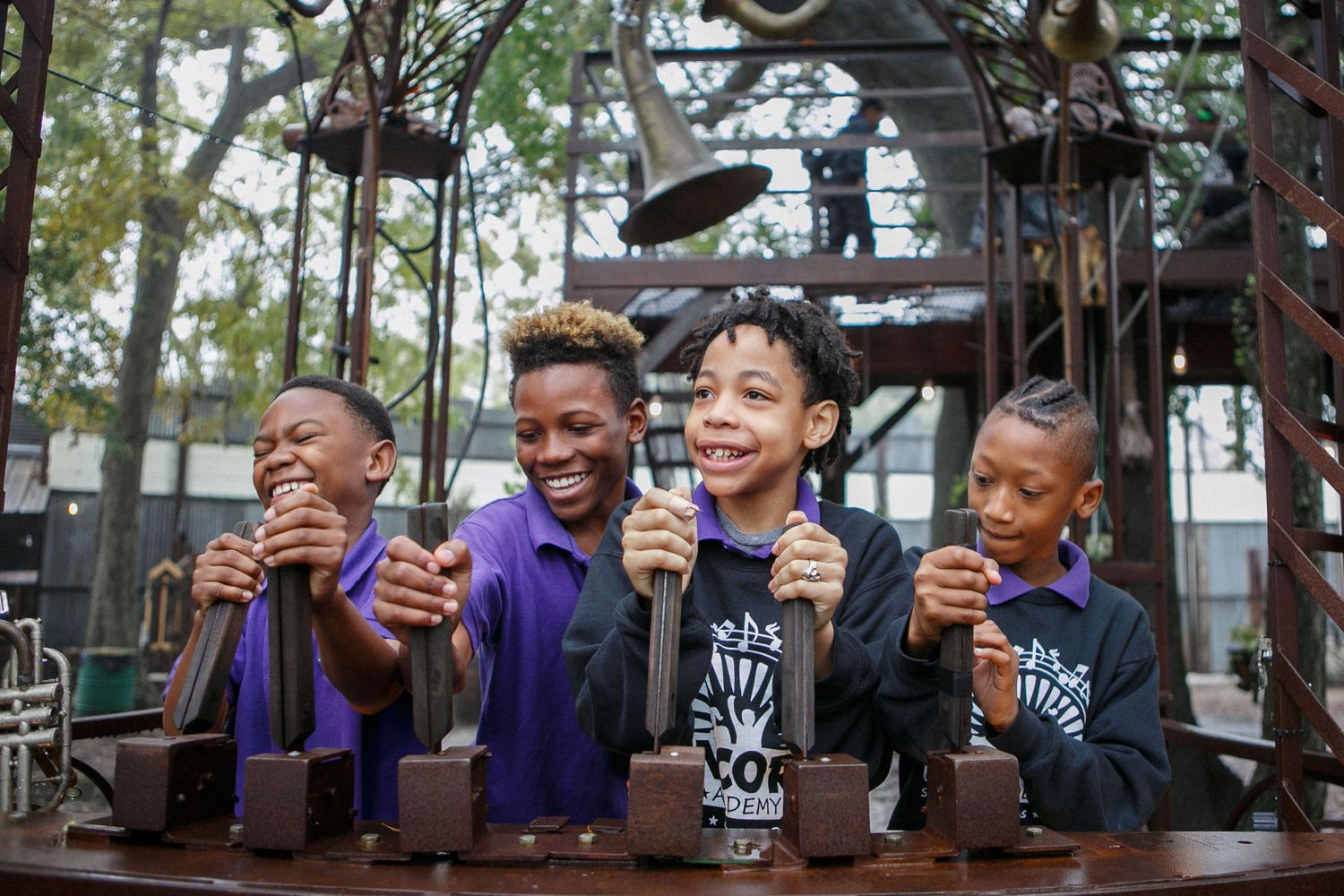
Between Tradition and Innovation: Reimagining Teacher Training at NEOJIBA

When trying to renew an initiative that has existed for almost a decade, our great challenge is to find that precise balance between valuing tradition and proposing something new. At NEOJIBA State Nuclei for Youth and Children’s Orchestras of Bahia, this balance is fundamental to our continuous search for improvement—praising what already works, recognizing what can be improved, and having the tranquility to suggest something innovative without losing the essence of an idea.
It was in this spirit that in 2023, on a sunny afternoon during Bahia’s “eternal summer,” we began to redesign PROCEC, our collective teacher training program. For more than a decade, this initiative has offered pedagogical and management training to partner musical projects across the state.
Each year, 40 young music teachers are selected through a public call and receive ten months of financial, pedagogical, and managerial support as they develop community intervention projects where they live. This is one of the ways that NEOJIBA puts its motto into practice: “Those Who Teach, Learn.”

Founded by conductor and pianist Ricardo Castro in 2007, NEOJIBA is a socio-educational music program centered in Bahia, Brazil. Beyond the 13 centers and more than 2,300 children and youth served daily, the program reaches over 6,000 musicians through various community-oriented actions. PROCEC is one of these essential actions, rooted in the institution’s pedagogical culture.
How to renew PROCEC in these changing times? We have always sought to tweak and improve the program, but in 2023, we saw a particularly fertile field worth exploring. Since 2021, NEOJIBA has been involved with AIM, the Academy for Impact through Music, an international initiative focused on training music educators to effect social change. The partnership inspired us to apply to PROCEC the innovative methodologies and pedagogical strategies we had all experienced through AIM’s Firebird Fellowship program. In terms of teaching methodology and how the participating fellows are monitored, this was our most substantial overhaul of the initiative.
Even with AIM’s help, we were buoyed by our own autonomy in running PROCEC—and doing so in a controlled environment. If nothing went right, we figured, we would have the freedom and space to correct course for the following year.
Happily, the results are encouraging. The new PROCEC includes:
- Two online training modules (six hours each). Both NEOJIBA’s collective music teaching methodology and AIM’s five destinations—Holistic Development, Intrinsic Motivation, Autonomy, Artistry, and Community—were included. Scholarship recipients were encouraged to apply these ideas in their own projects and local contexts.
- Individualized tutoring. AIM Firebirds (NEOJIBA educators in training by AIM) and Alumni (NEOJIBA educators already trained by AIM) accompanied the scholarship recipients monthly through online meetings. In these sessions, lesson videos were analyzed and teaching strategies improved.
- Technical co-tutoring. NEOJIBA teachers and coordinators offered specific vocal and instrumental support to scholarship recipients, promoting continued musical training.
- An in-person residency. Participants commit to three immersive days at NEOJIBA’s Salvador headquarters, where scholarship recipients can exchange experiences, participate in collective practices, and consolidate the year’s learning.
Another key element was the introduction of Action Research—research actions carried out by scholarship recipients in their own communities. This proposal, within an experimental format, stimulated an investigative and reflective approach by teachers, helping to organize their ideas and collect evidence about the impact of their work.

The fruits of this idea began emerging throughout the year. A young teacher of only 16 years old began to work on the holistic development of her class, focusing on communication and respect among students. Another educator encouraged student autonomy through collective composition activities, helping them overcome the fear of performing in public. There were also those who transformed their teaching practice into an academic article, submitted and approved for publication in ABEM (Brazilian Association of Music Education). We could perceive, at various depths, that the content of and reflections from the PROCEC training meetings resulted in significant advances in student learning.
The in-person residency, held in December 2024, was the highlight of the year. It consolidated knowledge, promoted integration between tutors and scholarship recipients, and strengthened the network. Participants focused on topics such as social inclusion, youth protagonism, cultural diversity, and local identity, always through the lens of collective music teaching. Innovative methodologies were also highlighted, contributing to a more creative, critical, and collaborative pedagogical practice. Said one 22-year-old participant from the Bahia countryside: “I realized that everything they’re teaching us, they actually do themselves, and that really blew my mind.”

In numbers, PROCEC 2024 resulted in more than 800 hours of training and tutoring for 40 scholarship recipients, with more than 600 students directly impacted across Bahia. The results inspire us to continue advancing, and in 2025, the program will include new strategies like peer coaching, wherein veteran scholarship recipients will help beginners. But that is a story for another time.
Great changes can happen with small gestures. They also happen when we are motivated by new ideas. All of our 2024 PROCEC tutors accepted roles to return in 2025; their engagement is what sustained the program in its first ‘new’ year. In leadership roles at socio-educational programs, we must stay open to innovation, even (or especially) when change feels intimidating. When we do, we motivate our teams beyond what we thought possible.
Related Content
All Regions, Community Building, Editorials, Gather Together, Opinion, Perspectives & Collective Action, Professional Development, Program Design, Student Voice & Leadership, Teaching & Learning, the ensemble
EDITORIAL
Musical Benchmarks Build Equity
Patrick Scafidi
All Regions, Collaborations, Community Building, Events/Performances, Gather Together, News and Resources, North America, Professional Development
New ESUSA Opportunities & Events
Patrick Scafidi
Collaborations, Community Building, Europe, Events/Performances, Funding & Support, Gather Together, Middle East, News and Resources, Professional Development
Funding Opportunity for Arab Artists Based in Europe
Patrick Scafidi
Collaborations, Community Building, Featured, Gather Together, New Orleans, North America, Perspectives & Collective Action, Student Voice & Leadership

The Importance of Free Play in Music Education
Patrick Scafidi


